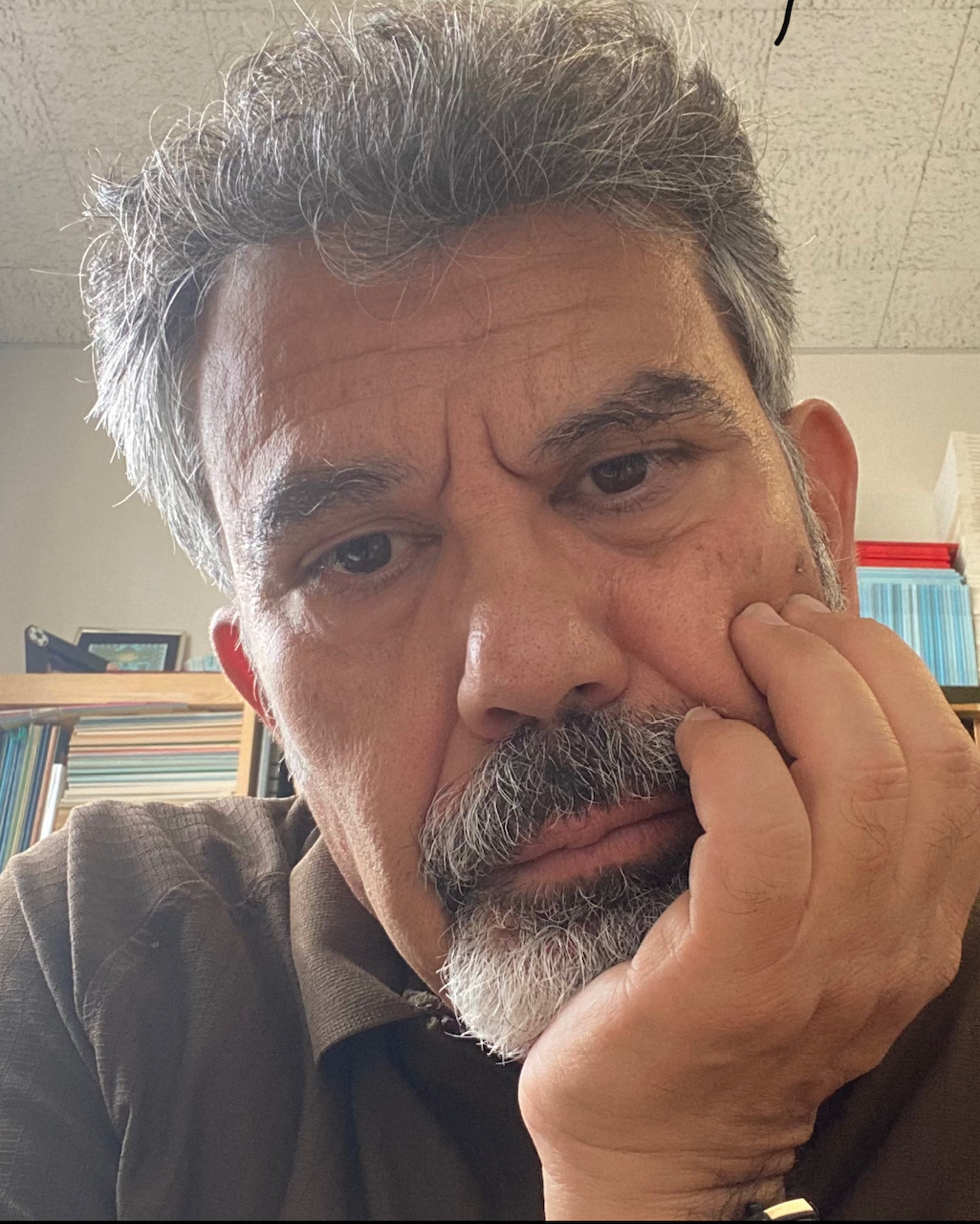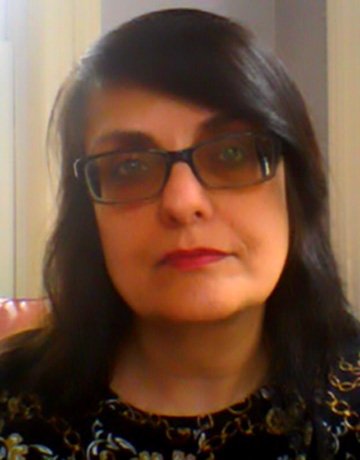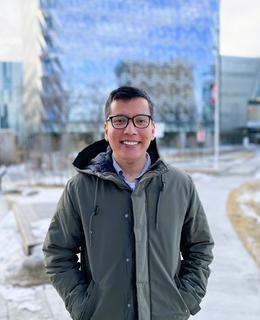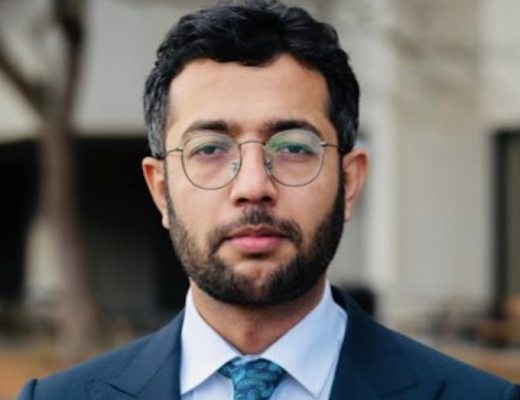Ambassador Roya Rahmani, Opening Keynote

Roya Rahmani was Afghanistan’s first female Ambassador to the United States and to Indonesia, and she served as the first director general for regional cooperation at the Afghan Ministry of Foreign Affairs. She won the Best Human Rights Activist Award from the Afghanistan Independent Human Rights Commission in 2007. Indonesia Tatler named Rahmani the “People’s Ambassador” in 2017, and in 2019, she was featured on Time Magazine’s “100 Next List” for being a “fierce advocate of peace on Afghan terms.” She has nearly two decades of experience working with governments, nongovernmental organizations, and multilateral institutions. She is currently the Vice Chair of Public Policy at Delphos, serves as a senior advisor at the Atlantic Council’s South Asia Center, is a distinguished fellow at the Georgetown Institute for Women, Peace, and Security, and acts as a senior fellow for international security at the New America Foundation. You can find more information about Ambassador Roya Rahmani on this website.
Ambassador Rahmani’s talk will be on March 17, 2023, from 4:30 – 6 p.m. in the Greg Sutliff Auditorium in the Lewis Katz Building.
Sarah Chayes, Featured Speaker

Sarah Chayes is internationally recognized for her innovative thinking on corruption and its implications. From 1996 to 2001, Chayes worked as NPR’s Paris correspondent and was awarded the 1999 Foreign Press Club and Sigma Delta Chi awards for her work during the Kosovo crisis. She covered the fall of the Taliban in 2001, which led her to leave her career in journalism in 2002 to help rebuild the country, settling in Kandahar. In 2005, Chayes founded a manufacturing cooperative in Kandahar called Arghand, which allowed men and women to work together to develop skin-care products. Later, Chayes served as a special assistant to the top U.S. military officer, Chairman of the Joint Chiefs of Staff Admiral Mike Mullen. This work was focused on governance issues and allowed her to participate in high-level decision-making on Afghanistan, Pakistan, and the Arab Spring. At the end of the early 2000s, Chayes worked as a special adviser to two commanders of the international troops in Afghanistan (ISAF). After this, she became a senior fellow at Carnegie Endowment for International Peace, working for the Democracy, Conflict, and Governance program. She is the author of Thieves of State: Why Corruption Threatens Global Security. You can find more information about Chayes and her work on this website.
Chayes’ talk will be on March 18, 2023, from 9 – 10:15 a.m. in room 116 of the Lewis Katz Building.
Tamim Ansary, Closing Keynote

Tamim Ansary was born in Kabul, Afghanistan in 1948, where he lived until he was 16 years old. He moved to the United States for school. In the 1960s and 1970s, he lived in Portland, Oregon, working with a counterculture newspaper collective that published weekly tabloids, titled, The Scribe. After his time with The Scribe, he joined the Asia Foundation, where he helped edit a bi-weekly publication concerning Asian culture and politics for Asian scholars in America. He dedicated time to developing his writing– publishing textbooks, writing nonfiction children’s books, writing a column for Encarta.com, and running the San Francisco Writer’s Workshop. The turning point in his career came following the devastating events of 9/11, after his 900-word email to friends about the event went viral. He then began giving talks about Afghanistan, producing a radio show about Islamic history, and writing essays and books about Afghanistan and Islam. His writing focuses on the question of what happens in zones where cultures overlap. His latest book, The Invention of Yesterday, explores whether a single global story can be discerned in the jostling of different world-historical perspectives. You can find more information about Ansary on his website.
Ansary’s talk will be on March 18, 2023, from 5 – 6:30 p.m. in the Greg Sutliff Auditorium in the Lewis Katz Building.
Dr. Wali Ahmadi, Panelist
 Dr. Wali Ahmadi is an associate professor of Persian Literature at the University of California, Berkeley. He is a native of Kabul, Afghanistan, and he came to the United States after graduating high school in 1982. He received his B.A. in Political and Social sciences from California State University, Hayward (now East Bay) in 1987. In the spring of 1997, he was awarded a Ph.D. in Comparative Literature from UCLA. From 1997-2000 he taught at the Department of Asian and Middle Eastern Languages and Cultures at the University of Virginia. Since 2000, he has been teaching Persian literature in the Department of Middle Eastern Languages and Cultures at UC Berkeley. He was promoted to the rank of Associate Professor in 2007 and also serves as the departmental Undergraduate Adviser. Professor Ahmadi’s primary areas of interest include classical and modern Persian literature, literary theory and criticism, Afghanistan studies, and cultural history. For more information about Dr. Ahmadi, please visit this site.
Dr. Wali Ahmadi is an associate professor of Persian Literature at the University of California, Berkeley. He is a native of Kabul, Afghanistan, and he came to the United States after graduating high school in 1982. He received his B.A. in Political and Social sciences from California State University, Hayward (now East Bay) in 1987. In the spring of 1997, he was awarded a Ph.D. in Comparative Literature from UCLA. From 1997-2000 he taught at the Department of Asian and Middle Eastern Languages and Cultures at the University of Virginia. Since 2000, he has been teaching Persian literature in the Department of Middle Eastern Languages and Cultures at UC Berkeley. He was promoted to the rank of Associate Professor in 2007 and also serves as the departmental Undergraduate Adviser. Professor Ahmadi’s primary areas of interest include classical and modern Persian literature, literary theory and criticism, Afghanistan studies, and cultural history. For more information about Dr. Ahmadi, please visit this site.
Munazza Ebtikar, Panelist

Munazza Ebtikar is a Ph.D. Candidate and Faculty of Asian and Middle Eastern Studies and Anthropology at the University of Oxford. She obtained her Master of Philosophy (MPhil) in Modern Middle Eastern Studies from the University of Oxford. Ebtikar has a Bachelor of Arts in Peace and Conflict Resolution with a concentration on Human Rights and Human Security, a Bachelor of Arts in Middle Eastern Studies with a concentration on Politics, and a Bachelor of Arts in Near Easter Languages and Literatures with a concentration on Persian Language and Civilizations, all from the University of California, Berkeley. She is the recipient of a multitude of grants and has conducted significant language study research. You can find more information on Munazza Ebtikar here.
Dr. Shah Mahmoud Hanifi, Panelist
 Dr. Shah Mahmoud Hanifi is a professor of the History department at James Madison University. He obtained his Ph.D. from the University of Michigan and his Bachelor of Arts degree from the University of Wisconsin-Madison. His research interests include Afghanistan, the Persianate world, Pashto, colonialism, nationalism, tribal history, nomadic societies, Islamic urbanism, historical linguistics, migration, diasporas, identity formation, cartography, photography, and animal and environmental studies. He is the author of Connecting Histories in Afghanistan, and he has also published many journal articles, book chapters, and essays pertaining to his areas of interest. You can find more information about Dr. Shah Mahmoud Hanifi here.
Dr. Shah Mahmoud Hanifi is a professor of the History department at James Madison University. He obtained his Ph.D. from the University of Michigan and his Bachelor of Arts degree from the University of Wisconsin-Madison. His research interests include Afghanistan, the Persianate world, Pashto, colonialism, nationalism, tribal history, nomadic societies, Islamic urbanism, historical linguistics, migration, diasporas, identity formation, cartography, photography, and animal and environmental studies. He is the author of Connecting Histories in Afghanistan, and he has also published many journal articles, book chapters, and essays pertaining to his areas of interest. You can find more information about Dr. Shah Mahmoud Hanifi here.
Dr. Zubeda Jalalzai, Panelist
 Dr. Zubeda Jalalzai has been a professor in the areas of early-19th-century American Literature, Postcolonial theory and Literature, and Literary Theory since 2000. She has published in the fields of Early American Literature, Transatlanticism, Native-American Literature, Postcolonial Theory, Afghanistan, and Islam in America. Her current research involves Afghan travel narratives from the 18th century to the present day, which she is developing into a book manuscript titled, “Overland to Afghanistan: Travel Writing and the Afghan Romance.” In January 2015 a chapter from this work appeared in the collection, Asia and West, edited by Elisabetta Marino and Tanfer Emin Tunc (Macfarland & Co. Inc.). She has also published an edited collection of essays on the connection between 19th-Century American Literature and the Islamic World called “Washington Irving and Islam” from Lexington Books. She is also the author of Globalizing Afghanistan: Terrorism, War, and the Rhetoric of Nation-Building, which she co-edited with David Jefferess, and Overland to Afghanistan: Travel Writing and the Afghan Romance, which she is currently working on. For more information on Dr. Zubeda Jalalzai, please visit this site.
Dr. Zubeda Jalalzai has been a professor in the areas of early-19th-century American Literature, Postcolonial theory and Literature, and Literary Theory since 2000. She has published in the fields of Early American Literature, Transatlanticism, Native-American Literature, Postcolonial Theory, Afghanistan, and Islam in America. Her current research involves Afghan travel narratives from the 18th century to the present day, which she is developing into a book manuscript titled, “Overland to Afghanistan: Travel Writing and the Afghan Romance.” In January 2015 a chapter from this work appeared in the collection, Asia and West, edited by Elisabetta Marino and Tanfer Emin Tunc (Macfarland & Co. Inc.). She has also published an edited collection of essays on the connection between 19th-Century American Literature and the Islamic World called “Washington Irving and Islam” from Lexington Books. She is also the author of Globalizing Afghanistan: Terrorism, War, and the Rhetoric of Nation-Building, which she co-edited with David Jefferess, and Overland to Afghanistan: Travel Writing and the Afghan Romance, which she is currently working on. For more information on Dr. Zubeda Jalalzai, please visit this site.
Dr. Ali Karimi, Panelist
 Dr. Ali Karimi is an Assistant Professor in the Department of Communication, Media and Film at the University of Calgary. He is a scholar of critical information studies with a focus on surveillance, privacy, and data justice.
Dr. Ali Karimi is an Assistant Professor in the Department of Communication, Media and Film at the University of Calgary. He is a scholar of critical information studies with a focus on surveillance, privacy, and data justice.
Karimi’s current research examines the power politics of how the state produces, organizes, and uses population information. He studies this problem mostly in the context of the weak states of the Global South where data is often contested and information injustice is a major issue—a problem that particularly hurts marginalized groups.
He is currently working on a book project, tentatively titled State of Opacity: A History of Counting People, Places, and Prices in Afghanistan, that tells the story of three artifacts that are used for tracking people, places, and prices: the identification document, the house number, and the price tag. The book shows how numerical information—or lack thereof—can affect the state, society, and the market at large. Grounded in the intersection of media studies and STS, this project is based on unexamined archival sources from Afghanistan and several other countries and ethnographic fieldwork.
You can find more information about Dr. Ali Karimi and his work here.
Dr. Mejgan Massoumi, Panelist
 Dr. Mejgan Massoumi is a Lecturer and Fellow in Civic, Liberal, and Global Education at Stanford University. Her work and research explores Afghan engagement with a global communication technology, the radio, during a period of intense political reform and social transformations (1960-1979), which draws on archives in Farsi, Pashto, Tajik, Urdu, and English. As a scholar and educator, and refugee and immigrant, Massoumi is committed to advancing a culture of equity and inclusion within academia through her activism and advocacy for diversity as well as her teaching and scholarship focused on the study of history through the experiences of marginalized peoples, places, and cultures. Massoumi’s previous research explored how the dynamics of different forms of religious fundamentalisms are produced, represented and practiced in the city. The culmination of this research can be found in her co-edited book, The Fundamentalist City? Religiosity and the Remaking of Urban Space (Routledge, 2010). Her master’s research focused on race and inter-ethnic conflicts in post-9/11 Afghanistan, highlighting how humanitarian aid from the West contributed to deepening social and ethnic divides. You can find more information about Dr. Mejgan Massoumi here.
Dr. Mejgan Massoumi is a Lecturer and Fellow in Civic, Liberal, and Global Education at Stanford University. Her work and research explores Afghan engagement with a global communication technology, the radio, during a period of intense political reform and social transformations (1960-1979), which draws on archives in Farsi, Pashto, Tajik, Urdu, and English. As a scholar and educator, and refugee and immigrant, Massoumi is committed to advancing a culture of equity and inclusion within academia through her activism and advocacy for diversity as well as her teaching and scholarship focused on the study of history through the experiences of marginalized peoples, places, and cultures. Massoumi’s previous research explored how the dynamics of different forms of religious fundamentalisms are produced, represented and practiced in the city. The culmination of this research can be found in her co-edited book, The Fundamentalist City? Religiosity and the Remaking of Urban Space (Routledge, 2010). Her master’s research focused on race and inter-ethnic conflicts in post-9/11 Afghanistan, highlighting how humanitarian aid from the West contributed to deepening social and ethnic divides. You can find more information about Dr. Mejgan Massoumi here.
Dr. Omar Sadr, Panelist
 Dr. Omar Sadr is a Research Fellow at the Center for Governance and Markets (CGM) in the Graduate School of Public and International Affairs (GSPIA) at the University of Pittsburgh. Previously, he worked as an Assistant Professor of Political Science at the American University of Afghanistan (AUAF) in 2021, as a Researcher at the Afghanistan Institute for Strategic Studies (AISS) in 2018, and at the Department of Peace Studies, the National Centre for Policy Research (NCPR), Kabul University in 2011. His primary research interests include pluralism, democratic governance, as well as politics of Afghanistan. He has been an advocate of political reform, constitutionalism, and pluralism in Afghanistan. Dr. Sadr holds a Ph.D. (2018) and an MA (2013) from South Asian University (SAU), a university established by the SAARC nations. Dr. Sadr is the author of numerous books, chapters, book reviews, papers, and articles. His most recent book, Negotiating Cultural Diversity in Afghanistan, was published by Routledge in London and examines the problematique of multiculturalism in Afghanistan. His work has appeared in venues such as Fair Observer, The Atlantic Council, and The National Interest. He also appears regularly on BBC Persian, Afghanistan International, and ToloNews (three prominent Persian TVs). He founded the Negotiating Ideas Podcast, where he discusses political ideas on peace, democracy, and pluralism. You can find more information about Dr. Sadr and his work here.
Dr. Omar Sadr is a Research Fellow at the Center for Governance and Markets (CGM) in the Graduate School of Public and International Affairs (GSPIA) at the University of Pittsburgh. Previously, he worked as an Assistant Professor of Political Science at the American University of Afghanistan (AUAF) in 2021, as a Researcher at the Afghanistan Institute for Strategic Studies (AISS) in 2018, and at the Department of Peace Studies, the National Centre for Policy Research (NCPR), Kabul University in 2011. His primary research interests include pluralism, democratic governance, as well as politics of Afghanistan. He has been an advocate of political reform, constitutionalism, and pluralism in Afghanistan. Dr. Sadr holds a Ph.D. (2018) and an MA (2013) from South Asian University (SAU), a university established by the SAARC nations. Dr. Sadr is the author of numerous books, chapters, book reviews, papers, and articles. His most recent book, Negotiating Cultural Diversity in Afghanistan, was published by Routledge in London and examines the problematique of multiculturalism in Afghanistan. His work has appeared in venues such as Fair Observer, The Atlantic Council, and The National Interest. He also appears regularly on BBC Persian, Afghanistan International, and ToloNews (three prominent Persian TVs). He founded the Negotiating Ideas Podcast, where he discusses political ideas on peace, democracy, and pluralism. You can find more information about Dr. Sadr and his work here.
Ahmad Rashid Salim, Panelist
 Ahmad Rashid Salim (احمد راشد سليم) is a doctoral fellow at the University of California, Berkeley. His research interests include Persian mystical literature and its epistemologies of Islam. He studies the history, culture, and literature of modern Afghanistan and looks to interrogate and complicate prevalent notions around literary independence, peripheries of language, and imagined pasts in the Persianate world.. He is the author of the best-selling book, Islam Explained, published by Rockridge Press. You can find more information about Ahmad Rashid Salim here.
Ahmad Rashid Salim (احمد راشد سليم) is a doctoral fellow at the University of California, Berkeley. His research interests include Persian mystical literature and its epistemologies of Islam. He studies the history, culture, and literature of modern Afghanistan and looks to interrogate and complicate prevalent notions around literary independence, peripheries of language, and imagined pasts in the Persianate world.. He is the author of the best-selling book, Islam Explained, published by Rockridge Press. You can find more information about Ahmad Rashid Salim here.
Dr. Marjan Wardaki, Panelist
 Marjan Wardaki is a historian of the Middle East and South Asia, with research interest in the history of science and medicine, empire, and migration. Her research introduces South Asian formulations about science and technology to the study of European and imperial science. Her previous article in Modern Asian Studies dealt with lithographic technologies in the rediscovery of Afghanistan’s fine art. While at Yale, she is working on her book manuscript, Decolonial Science: Muslims in Interwar Europe and the Making of Modern Afghanistan, which examines the relationship between decolonization, science, and migration in the early twentieth century. Works in progress include several articles on Indian vernacular medicine and the science of photography and technological innovations of the camera among an Urdu-speaking public. You can find more information about Dr. Marjan Wardaki and her work here.
Marjan Wardaki is a historian of the Middle East and South Asia, with research interest in the history of science and medicine, empire, and migration. Her research introduces South Asian formulations about science and technology to the study of European and imperial science. Her previous article in Modern Asian Studies dealt with lithographic technologies in the rediscovery of Afghanistan’s fine art. While at Yale, she is working on her book manuscript, Decolonial Science: Muslims in Interwar Europe and the Making of Modern Afghanistan, which examines the relationship between decolonization, science, and migration in the early twentieth century. Works in progress include several articles on Indian vernacular medicine and the science of photography and technological innovations of the camera among an Urdu-speaking public. You can find more information about Dr. Marjan Wardaki and her work here.